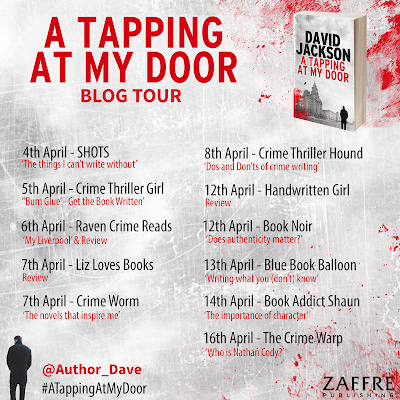Mixing
‘real’ people with invented ones in
fiction can be tricky, as we are beginning to discover. Sometimes our
inventions take on lives of their own, so much so that readers assume they are
real. After a while, we start to wonder ourselves.
At
the end of The Body on the Doorstep,
the first Hardcastle & Chaytor mystery, we wrote an afterword to let
readers know ‘what came next’, tying up the ends of the story. In the afterword
we mixed real and fictional characters together. We thought we had separated
out the only two real characters, J.M.W. Turner and Folliott Cornewall, but
apparently not. Many of our readers were both puzzled and confused. We still
get letters asking if other characters such as Shaw and Lord Clavertye are also
real.
Oops.
Then
there is also the question of whether the fictional characters are based on
real people. Authors have been asked this question since the beginning of time
(we suspect - no real research has been done by us!). People in our own small
village have spent some time trying to find local models for Reverend
Hardcastle in particular. (There isn’t one – we’re not stupid. We have to live
here, and interact with our local clergy!)
Some
of our characters may have been inspired by some characteristics of some people
met in the past (note the deliberate vagueness), but the vast majority are
inspired by reading history and picking character traits from a range of
historical figures. Sometimes, though, it is just too tempting to use a person
from history. People walk out of the pages of books, and you just have to use
them. At other times the plot demands that well-known people – politicians,
singers, bankers, sea captains, authors, painters and so on – appear as
themselves.
J.M.W.
Turner appeared ‘as himself’ in The Body
on the Doorstep. We didn’t actually need a painter as such, but we did want
a young man who was observant, rather impatient of authority and had freedom of
movement. Someone in charge of his own work schedule, such as a painter, was
perfect. Turner is known to have painted on this coast at various times in his
career. At the time we were writing The
Body on the Doorstep, virtually nothing was known about his whereabouts in
the spring/summer of 1796. He was perfect for the story so we lifted him into
the book (there was also a sneaking hope that his presence in the story might
generate a little extra interest).
The
Very Reverend Folliott Cornewall’s presence in The Body on the Doorstep has a much more prosaic reason. We needed
a church authority figure and Cornewall’s career fitted well with Hardcastle’s
back story. His move to become Bishop of Hereford was also timely. We know of
nothing from history to support our version of his character, but he had no
children, so hopefully there is no one around to complain!
We
also toyed with the idea of inserting into a fictional character from another
(now deceased) author, but decided at the last moment that it might make life
too complicated. That would have meant having a real fictional character in a
fictional real setting; or is it the other way around? You see what we mean.
In
our latest book, The Body in the Ice,
we have introduced a few more real characters, some seen and one unseen. The
most famous, Jane Austen, is unseen, mentioned only in passing when we
introduce her brother, Edward Austen (later Edward Austen Knight). Her ‘appearance’ is related to Hardcastle’s
sister Calpurnia, who is a writer of Gothic novels.
Edward,
on the other hand, is a significant figure in both The Body in the Ice and our next book, The Body in the Boat. We needed an officer of the East Kent
Volunteers who would help chase down spies and other villains, and Edward was a
perfect fit. Why invent a character, we reasoned, when there was a real one
ready and waiting to walk on stage?
A
few other historical figures appear 'off-stage' or have minor speaking parts in
The Body in
the Ice too: Olaudah
Equiano, the prominent anti-slavery campaigner, Lord Grenville, the Foreign
Secretary (kudos to anyone who spots the Al Stewart reference), the Duke of
Portland, the Home Secretary, and Rufus King, the American ambassador of the
day. In The Body in the Boat, we have
a few more, notably Lieutenant Newton Stark, captain of the wonderfully named
Royal Navy warship Black Joke. And it turns out there really was a famous sea
captain from Rye named – wait for it – Captain Haddock.Using historical characters can be confusing in a work of fiction, we agree. It can also be fun, and make the narrative seem more real. We’ll keep doing it, and we’ll do our best to help our readers distinguish fiction from reality. Assuming we can tell the difference ourselves, of course.
The Body in the Ice by A J Mackenzie (Zaffre, out now)
Christmas
Day, Kent, 1796. On the frozen fields of
Romney Marsh stands New Hall; silent, lifeless, deserted. In its grounds lies
an unexpected Christmas offering: a corpse, frozen into the ice of a horse
pond. It falls to the Reverend
Hardcastle, justice of the peace in St Mary in the Marsh, to investigate. But
with the victim's identity unknown, no murder weapon and no known motive, it
seems like an impossible task. Working along with his trusted friend, Amelia
Chaytor, and new arrival Captain Edward Austen, Hardcastle soon discovers there
is more to the mystery than there first appeared. With the arrival of an
American family torn apart by war and desperate to reclaim their ancestral
home, a French spy returning to the scene of his crimes, ancient loyalties and
new vengeance combine to make Hardcastle and Mrs Chaytor's attempts to discover
the secret of New Hall all the more dangerous.





